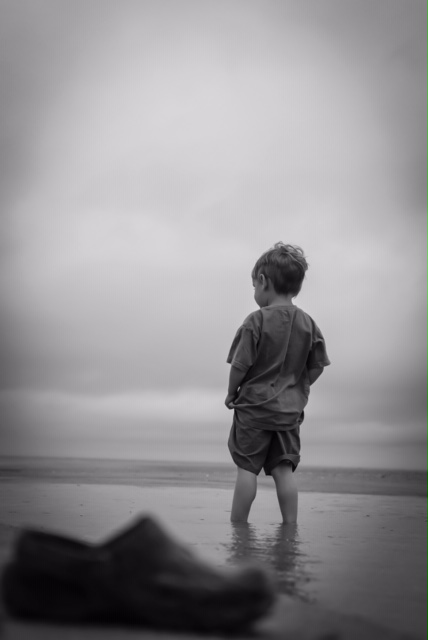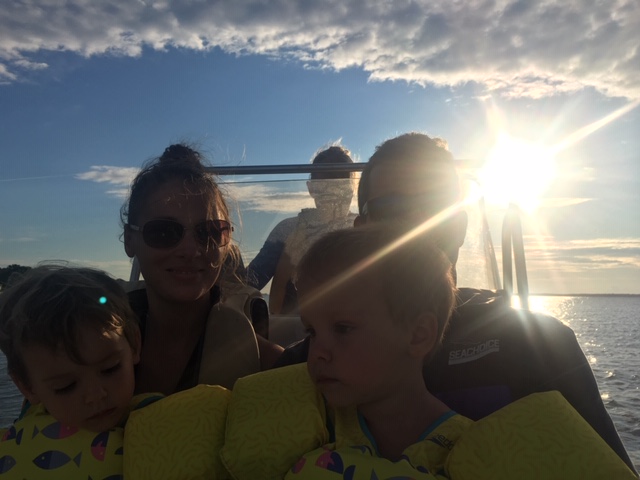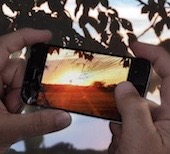Yesterday we piled onto a motorboat to cruise around the inlet near my father’s home. The more anxious of our three year-old twins clung to his mother, while the daredevil twin instructed his grandfather—who hadn’t even started the outboard motor yet—to go fast.
I am temperamentally more aligned with the anxious toddler, so I kept a tight grip on them both as we boarded. Even though the boat was anchored and floating in three feet of water, you just never know what might happen.

On board, my wife and I put the twins on our laps. The anxious one made sure his mother had a strong grip with both arms. The daredevil strained to get away from me so he could sit at the very front of the boat. He shouted at his grandfather to rev it up.
The truth is I hate boat rides with my children. I always have. If you dig into the Woodlief family archives, you’ll find a video shot on this same inlet 15 years ago. I’m on a jet ski with my now 20 year-old perched between my knees. We’re doing about half a mile an hour and getting passed by seagulls. Because, well, you just never know.
When we got to the waterway, my father picked up speed. I gritted my teeth and estimated how long we would have to be out. The sun was low in the sky and shimmering on the water, the weather was perfect, and all I could think about was turning around. My wife pointed at a gunship circling above. She wondered aloud to the twins whether their oldest brother the Marine might be on board.
“Ow,” my daredevil complained. “It hurts.” I realized I was clenching him so hard the buckles of my life vest were leaving indentions in his back. I tried to relax. I thought about my Marine at five years-old, putting along with me on that jet ski, absorbing all my tension.
My daredevil, his spirit deflating, turned and asked his grandfather to slow down. His anxious brother echoed the sentiment. We weren’t really going that fast.
It occurred to me that delighting in my children—in life, really—isn’t so much for my sake as for theirs. I want my children to embrace their lives, but they learn how to hold on from me, don’t they?
I eased my daredevil onto the boat floor, so that he stood between my knees. I pointed out a pelican gliding low over the water. I loosened my death grip. Soon he and his brother were pointing at birds, at the sun, at funny-shaped clouds. They asked an interminable string of questions. They laughed—even the anxious one—when we bounced over another boat’s wake.
I couldn’t bring myself to laugh, and I breathed easier when the boat turned and headed for home. But I’d loosened my death grip. Because who wants to hold on to death? In many ways that’s what I’ve done for 21 years, since the night I held my daughter and listened to the last breath rattle out of her throat.
I suppose while we fathers have to be on guard for the worst, we needn’t expect it, even after we’ve endured it. What’s the point of living if your eyes are always on the grave? Better to grip life, I think, even if I’m not always sure how. It’s been pried from my hands before, and I know one day it will be again. But not this day, and probably not tomorrow.
You know what my daughter said to me, the day the doctors filed into her hospital room to tell us she was going to die? She was three years old, the same age as these brothers who don’t know her. “God,” she said, as if delivering a personal message, “says do not worry about tomorrow.”
Kids, man. There’s so much we can learn from them, if we’ll only listen.



